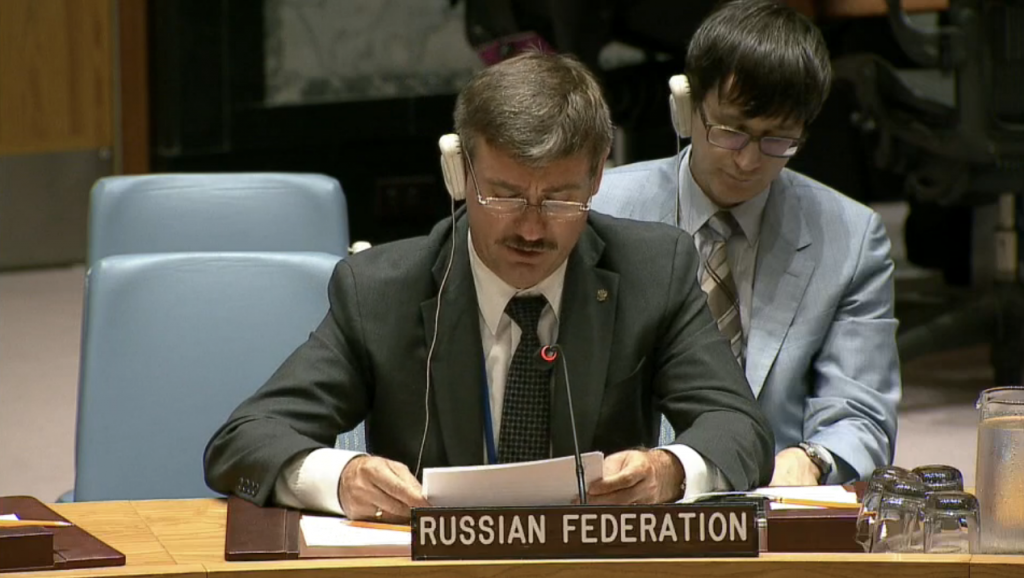Statement by Mr. Petr Iliichev, Chargé d'Affaires, at the Security Council on the activities of the United Nations Office for West Africa and the Sahel
We are grateful to Mr. Mohammed Ibn Chambas, Special Representative of the SecretaryGeneral, for his substantive and comprehensive report (S/2017/563).
We agree with his assessment that the situation in the diverse and extensive region that he covers is a complex one. The terrorist threat remains acute, and eradicating it is one of the primary tasks on the regional agenda. Until then it will be impossible to achieve sustainable political stability or make substantive progress in solving the region’s socioeconomic issues.
We are concerned about the fact that various criminal groups, pirates and smugglers are working closely with terrorists, exploiting gaps in national and border security for their own illegal activity and essentially profiting from chaos, instability and the suffering of civilians.
All of that puts an additional burden on the already difficult humanitarian situation in West Africa and the Sahel. Unfortunately, for many ordinary people, the dry statistical data that is comprehensible to specialists familiar with the region does not convey the tragic scale of the realities in the region. It will take a long time and redoubled international assistance efforts to overcome the negative trends.
We note the response of the Lake Chad Basin Commission and its work in forming a joint multinational rapid-reaction force together with Benin.
We welcome the establishment by the countries of the Group of Five for the Sahel of a counter-terrorist force, endorsed by the Security Council in resolution 2359 (2017), and we urge that it be deployed on the ground as soon as possible.
We emphasize that efforts to improve security and stability should be carried out as part of a comprehensive approach, combining military counter-terrorism measures with efforts to strengthen State institutions, promote systemic economic and social development, spread a culture of respect for human rights and the rule of law and provide jobs for young people.
We greatly appreciate the steps that have been taken by the United Nations Office for West Africa and the Sahel and the specialized United Nations agencies to provide various types of assistance to countries in this part of Africa. It is important to ensure that, as before, these efforts are coordinated with regional associations such as the African Union, the Economic Community of West African States, the Mano River Union, the Lake Chad Basin Commission, the Group of Five for the Sahel and others.
We also think it important to ensure that we improve the effectiveness of the United Nations Integrated Strategy for the Sahel, whose potential has not yet been fully realized, and that the United Nations agencies in West Africa and the Sahara-Sahel region take that factor into consideration in coordinating their aid efforts with the Governments of the region.
In that regard, the views of the countries for which the Strategy was developed should be a priority. Above all, we should ensure that external assistance does not take the form of solutions imposed on African Governments by outsiders. We support the principled position that outside meddling is unacceptable. We all remember that the roots of the precipitous degradation of the situation in the region go back to 2011, when outside interference resulted in an operation aimed at regime change in Libya.
